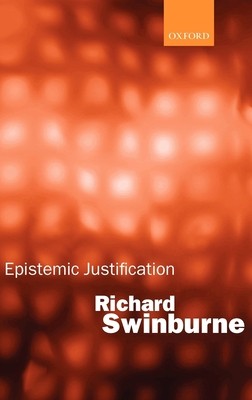
- We will send in 10–14 business days.
- Author: Richard Swinburne
- Publisher: Clarendon Press
- ISBN-10: 0199243786
- ISBN-13: 9780199243785
- Format: 16.1 x 24.5 x 2 cm, kieti viršeliai
- Language: English
- SAVE -10% with code: EXTRA
Reviews
Description
Richard Swinburne offers an original treatment of a question at the heart of epistemology: what makes a belief rational, or justified in holding? He maps the rival accounts of philosophers on epistemic justification ("internalist" and "externalist"), arguing that they are really accounts of different concepts. He distinguishes between synchronic justification (justification at a time) and diachronic justification (synchronic justification resulting from adequate investigation)--both internalist and externalist. He also argues that most kinds of justification are worth having because they are indicative of truth; however, it is only justification of internalist kinds that can guide a believer's actions. Swinburne goes on to show the usefulness of the probability calculus in elucidating how empirical evidence makes beliefs probably true.
EXTRA 10 % discount with code: EXTRA
The promotion ends in 23d.06:46:21
The discount code is valid when purchasing from 10 €. Discounts do not stack.
- Author: Richard Swinburne
- Publisher: Clarendon Press
- ISBN-10: 0199243786
- ISBN-13: 9780199243785
- Format: 16.1 x 24.5 x 2 cm, kieti viršeliai
- Language: English English
Richard Swinburne offers an original treatment of a question at the heart of epistemology: what makes a belief rational, or justified in holding? He maps the rival accounts of philosophers on epistemic justification ("internalist" and "externalist"), arguing that they are really accounts of different concepts. He distinguishes between synchronic justification (justification at a time) and diachronic justification (synchronic justification resulting from adequate investigation)--both internalist and externalist. He also argues that most kinds of justification are worth having because they are indicative of truth; however, it is only justification of internalist kinds that can guide a believer's actions. Swinburne goes on to show the usefulness of the probability calculus in elucidating how empirical evidence makes beliefs probably true.


Reviews